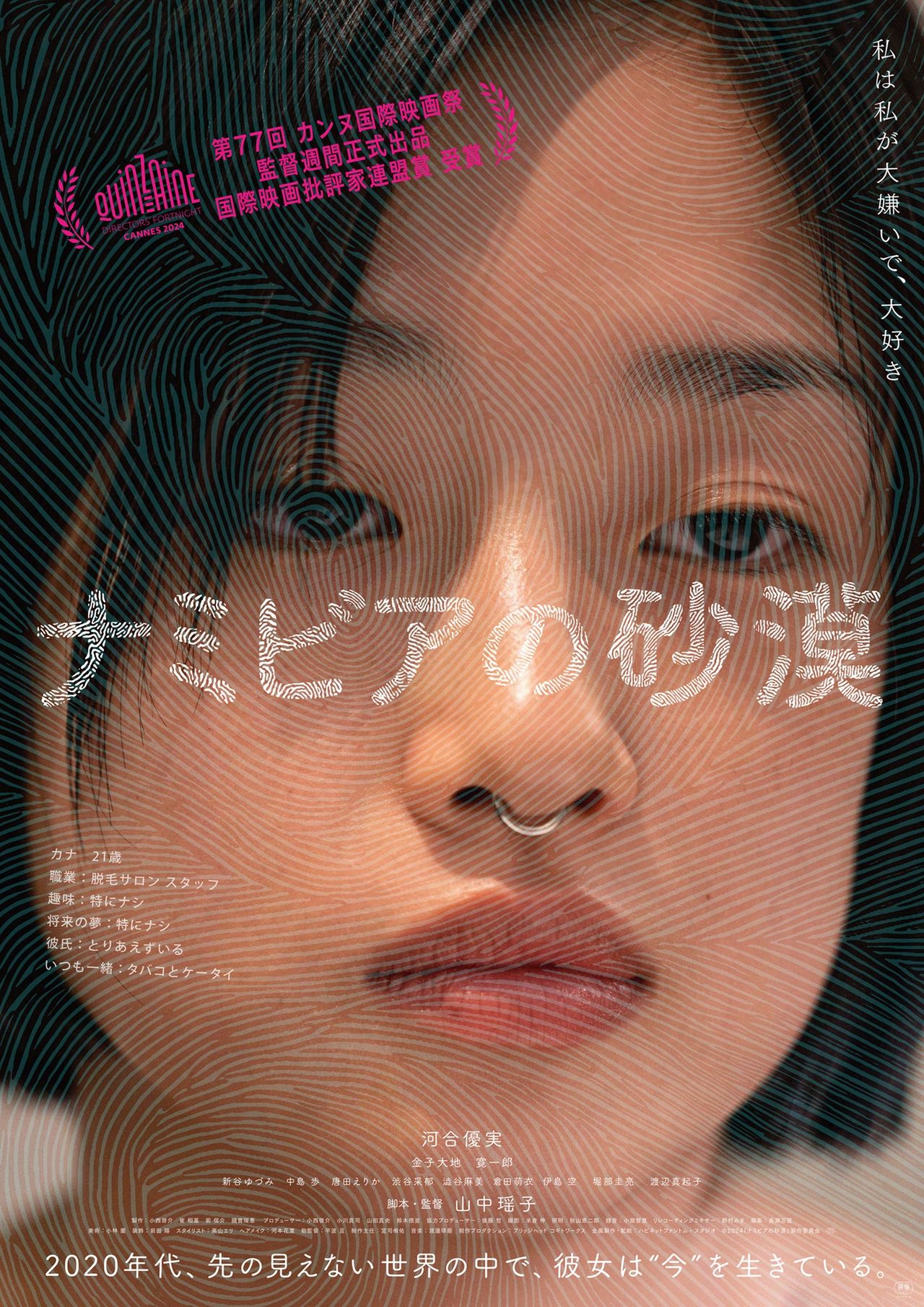
Yamanaka Yōko’s “Desert of Namibia” Shows Young Film Director’s Promise
Cinema Art- English
- 日本語
- 简体字
- 繁體字
- Français
- Español
- العربية
- Русский
A New Directorial Star Rises
Many Japanese cinema fans will already know Kawai Yūmi thanks to her breakthrough leading roles of the last two years. But the same might not be said of Yamanaka Yōko, the director of the 2024 Desert of Namibia, Kawai’s latest outing.
Desert of Namibia is director Yamanaka Yōko’s first full-length feature film. It comes seven years after Amiko, Yamanaka’s 2017 independently produced film that gained global plaudits. Just six months after graduating from high school, a 19-year-old Yamanaka wrote her first screenplay. Seemingly unaware that she was a novice, Yamanaka spent six relentless months gathering the crew, casting, shooting and editing the film. Then at the tender age of just 20, Yamanaka submitted Amiko to the competition section of Japan’s Pia Film Festival, an event focusing on independent films that often serves as a gateway to success for young directors.
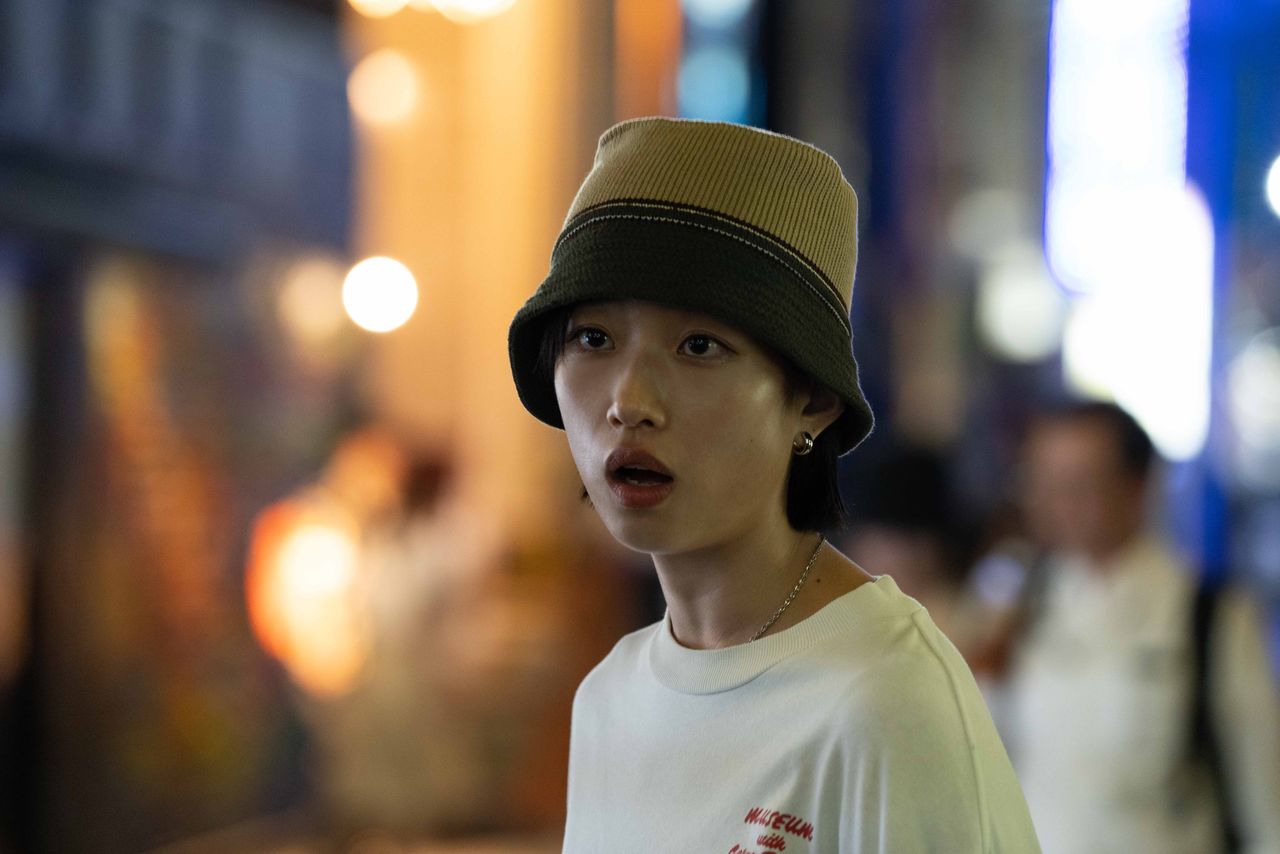
In Desert of Namibia, Kana (Kawai Yūmi) aggressively scolds a street scout in Tokyo’s gritty Kabukichō district. (© 2024 Desert of Namibia Production Committee)
Amiko, which proceeds at a pace as manic as its production schedule, eventually won two PFF awards: the Audience Award and the Hikari TV Award. The latter is notable as it goes to the film judged to have made the most innovative use of the latest technology and new methods of expression “without being bound by existing concepts or frameworks.” As Amiko became known overseas, it garnered global praise for Yamanaka. She became the youngest filmmaker ever to be invited to participate in the Forum section of the Berlinale, one of the world’s premiere international film festivals. The late musician Sakamoto Ryūichi, on seeing the film in New York, admitted to being stunned, saying that he couldn’t wait to see Yamanaka’s future works.

Kana designing a tattoo for her boyfriend in a shop. (© 2024 Desert of Namibia Production Committee)
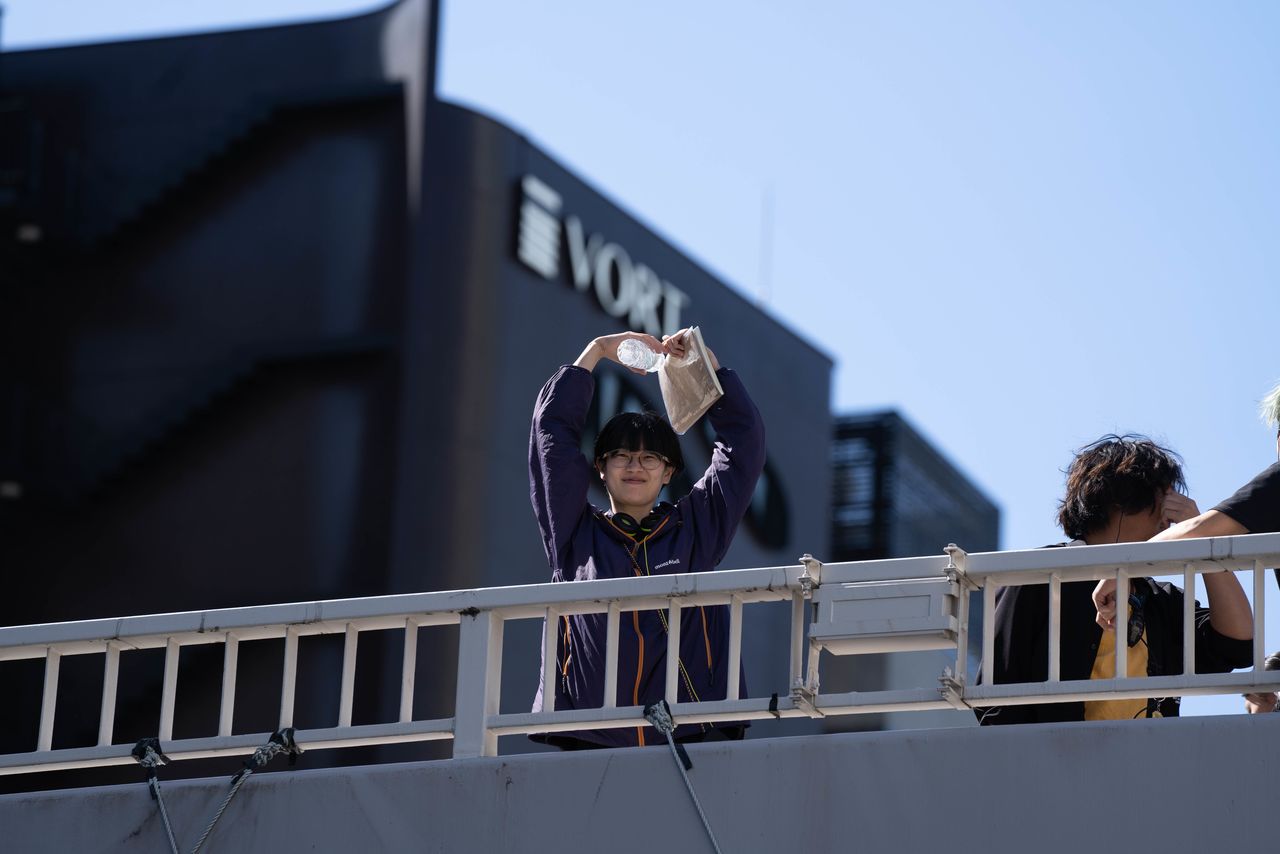
Director Yamanaka Yōko on location. (© 2024 Desert of Namibia Production Committee)
The intensity and raw brilliance of independent filmmakers often dies when they make their first films with a professional crew and cast for a commercial audience. But in Desert of Namibia, Yamanaka seems to buck this trend. Even with the expanded scale of the film, it still retains immense power. Desert of Namibia’s world premiere at the seventy-seventh Cannes International Film Festival earlier this year saw it take away the Fipresci Prize.
She is also only the sixth Japanese director to win this critic’s award, following Kurosawa Kiyoshi for Pulse and Hamaguchi Ryūsuke for Drive My Car. Yamanaka, now 27, also became the youngest female director to win the prize. It is fair to say that the Japanese film industry has finally found someone who is truly worthy of the moniker enfant terrible.
A New Image of the Movie Heroine
There is history between the director and the lead actress who drive the story in Desert of Namibia. Seven years ago, Yamanaka received a letter from Kawai, then a high school senior. In the letter, Kawai told Yamanaka that Amiko had inspired her to become an actress, and that she would like to act in one of Yamanaka’s films someday. It must have been inspiring to see Kawai gain prominence over the years and fulfil her promise with her onscreen presence in Desert of Namibia.

Hungover, Kana eats ham straight from the fridge the morning after heavy drinking. (© 2024 Desert of Namibia Production Committee)
Yamanaka began to conceive of this new project with Kawai in mind from the planning stage. As the project eventually came to fruition, they found that they were natural partners and together were creating a new image of a film heroine.
The film’s protagonist is 21-year-old Kana (Kawai). A friend invites her to a café to talk about a serious matter. Kana is distracted, however, reacting to details off-topic and sidetracked by the voices around her. Kana does not resonate with her friend’s emotional state at all.
However, after her friend finishes her story and they get ready to depart, Kana’s friend says that she does not want to be left alone. Kana is not so cold-hearted as to leave her in her moment of need and takes her to a host club. Kana nevertheless soon exits the club, leaving her friend on her own. She has arranged to meet a man named Hayashi nearby.

Kana starts dating creator Hayashi (Kaneko Daichi). (© 2024 Desert of Namibia Production Committee)
The romance between Kana and Hayashi (Kaneko Daichi) seems to be just beginning. They spend a nice time together, but when they part ways Kana returns home to her live-in boyfriend Honda (Satō Kan’ichirō). Morning comes, and the magic of the previous night has dissipated. Kana pedals her bicycle to work while puffing on a stubby cigarette. Her workplace is a beauty salon specializing in hair removal. She interacts with customers without expression and according to the manual. The day soon comes to an end.
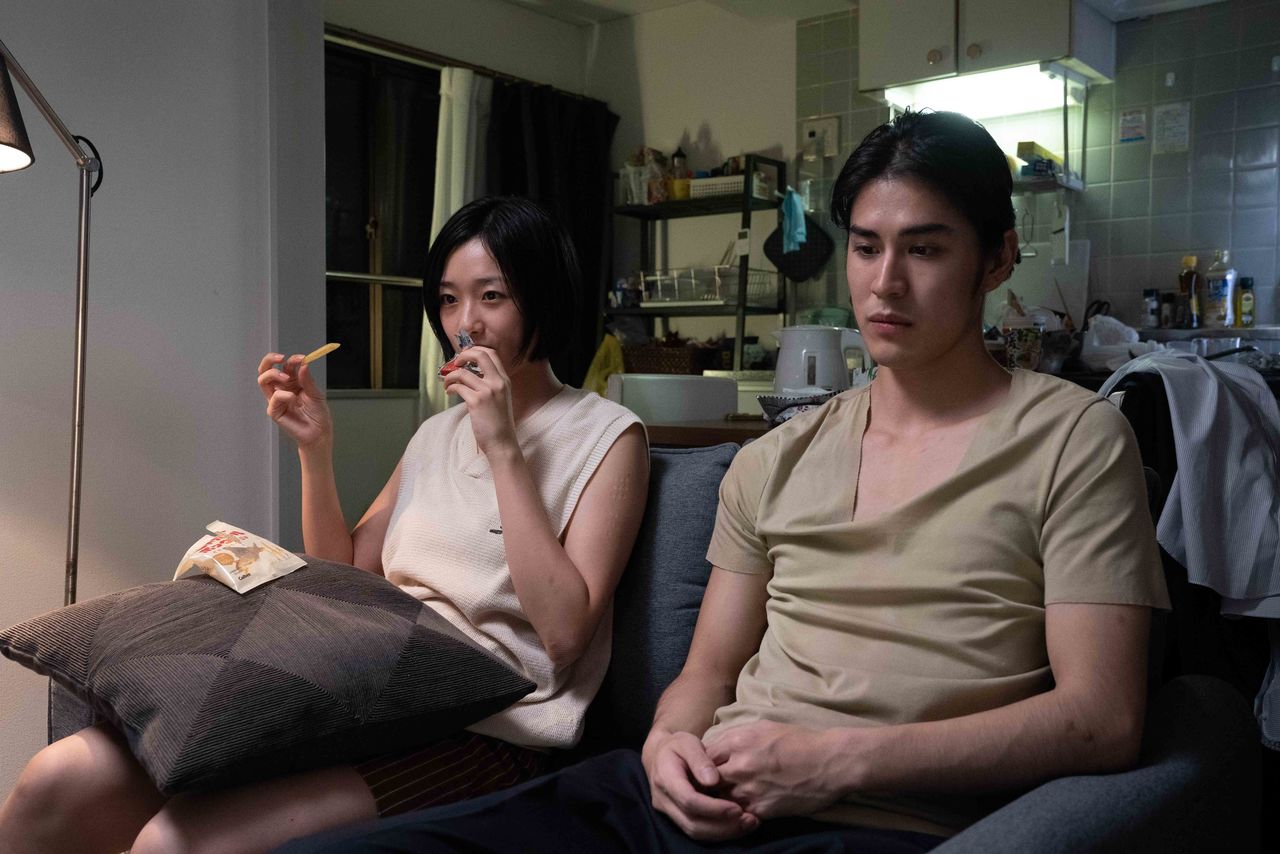
Kana’s live-in boyfriend, Honda (Satō Kan’ichirō), confides in her about what happened during his business trip. (© 2024 Desert of Namibia Production Committee)
An Overflowing Spring in a Desert Oasis
Even after this introductory 20 minutes, the audience is already captivated by Kana’s every move. Soon they will see her relationships transformed by a series of chance events. Suspense pervades the rest of the film as these events psychologically eat away at Kana’s inner self. Time and space alone between lovers are constantly assailed by the world around them. Stepping outside and mingling with people results in Kana being bombarded with words, gestures and glances that she struggles to give meaning to. If she looks hard enough, however, she can see the signs of depravity all around. Through the depiction of Kana’s inner life, seemingly unconnected events are tied together by a subtle logic. Yamanaka skillfully portrays shifting emotions throughout Desert of Namibia.
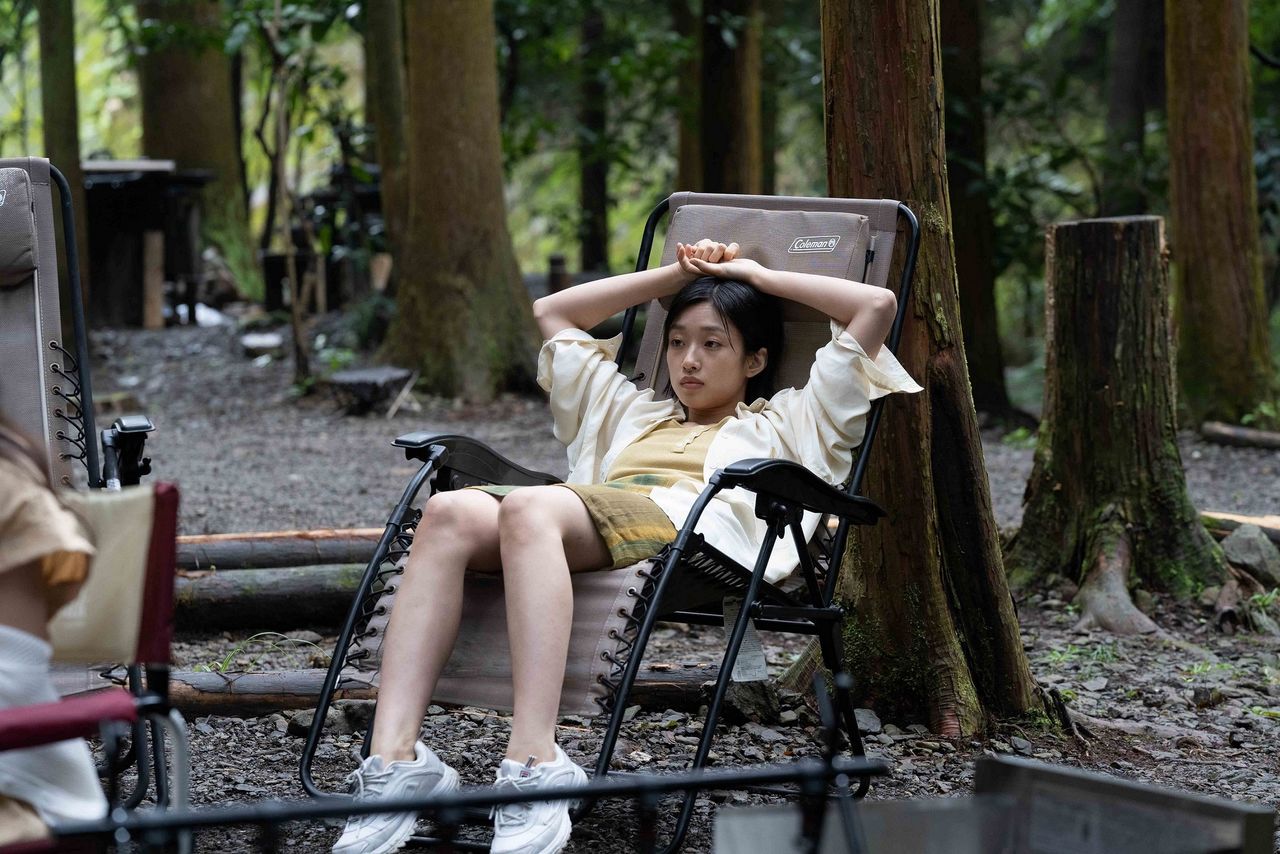
Kana is taken camping and becomes bored mingling with people she has never met before. (© 2024 Desert of Namibia Production Committee)
The film’s dialogue is seldom expository. Like the words and phrases used in our daily lives, they function as a signal that prompts the other person to take some action or are simply a means for Kana to pass time with others. The emotions that are left unexplained and hanging mid-air eventually explode later on in the film into violent action.

Having moved to a new flat, the sounds of everyday life emanate from the neighboring room. (© 2024 Desert of Namibia Production Committee)
The emotional expression on display in Desert of Namibia is characterized by extraordinary richness and variation. Many other films seem mediocre in comparison. There are, after all, emotions that can never be expressed by crying, smiling, or yelling. These are the emotions that are constantly swirling in our hearts. Yamanaka makes the audience aware of these complex emotions, and how they fluctuate, through masterful use of casual dialogue, facial expressions, and shooting techniques.
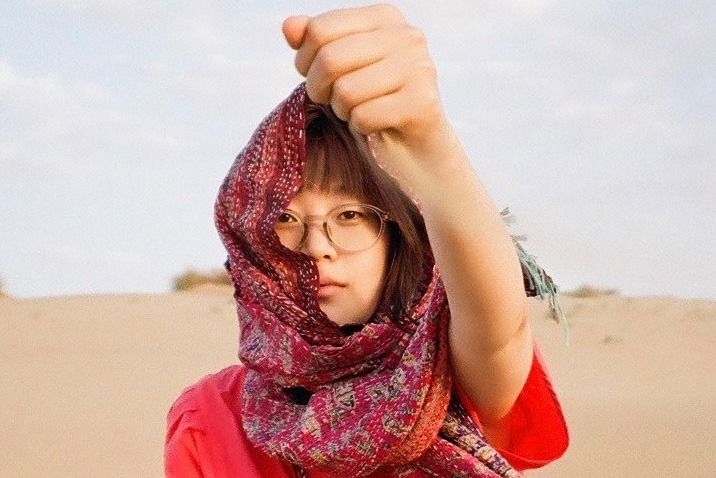
Director Yamanaka Yōko. (© 2024 Desert of Namibia Production Committee)
While the storytelling lets the audience into the dark depths of Kana’s mind, it also pushes it away with a unique sense of humor. It reflects a refreshingly step away from the constraining manners of recent Japanese society and in fact tears them apart in exhilarating fashion. For some, it may well be the best coming-of-age film they have seen in some time. This kind of work, with its mysterious novelty, has the power to move the world. The appearance of Yamanaka Yōko and Kawai Yūmi on the scene, two talented people with keen insights on modern society and with the god given talent to navigate it, is truly encouraging.
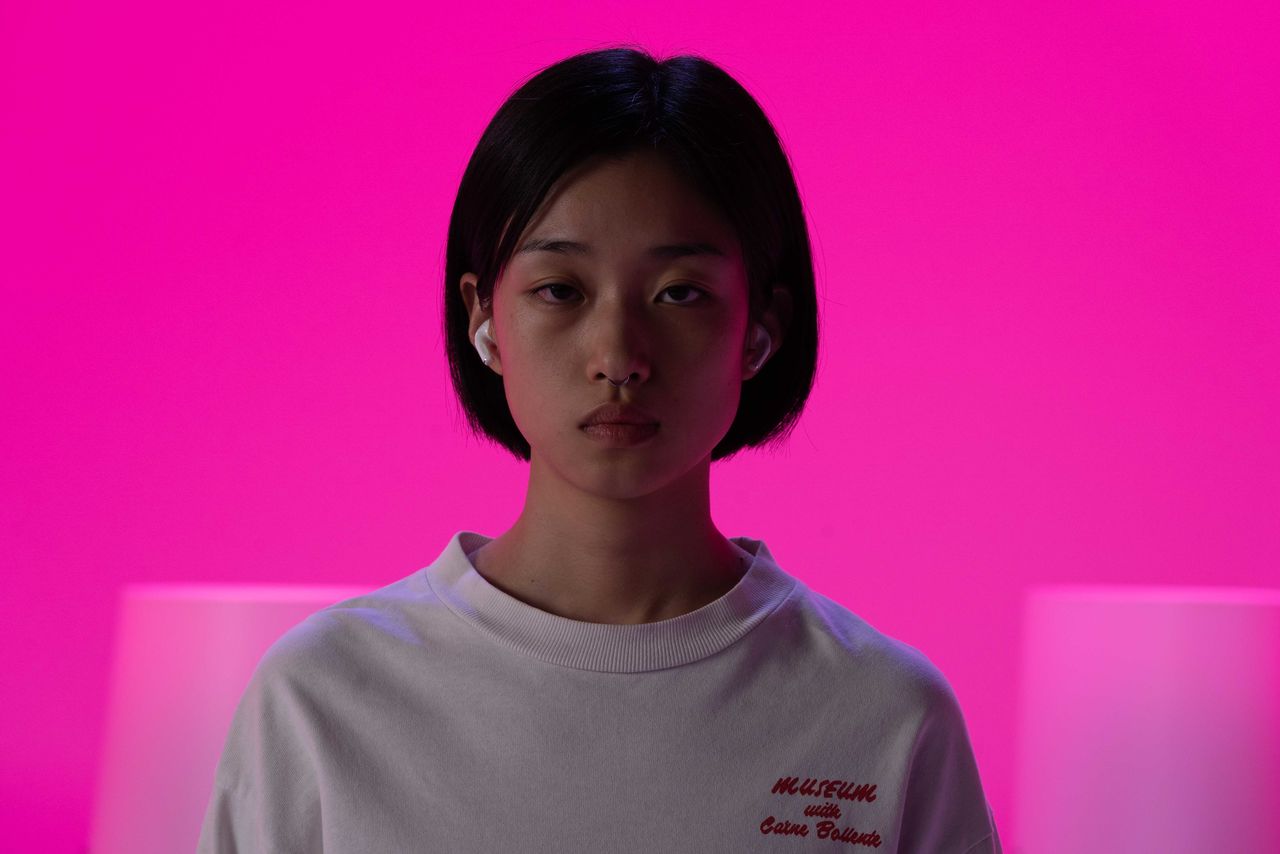
(© 2024 Desert of Namibia Production Committee)
Film Information
Official Site: https://happinet-phantom.com/namibia-movie/
Film Trailer
(Translated from Japanese. Banner photo © 2024 Desert of Namibia Production Committee.)
